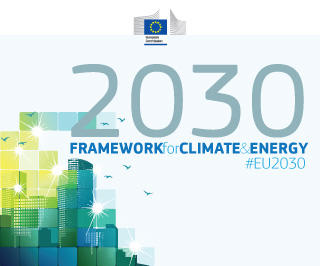New Report Finds the EU's 2030 Climate and Energy Framework a Genuinely Negotiated Compromise

A new comprehensive FNI Report documents the complicated political negotiations leading to the EU's 2030 Climate and Energy Framework in 2014 by assessing the influence of the EU's key executive institutions, the member states and the various stakeholders in the interest group community.
The main finding in the report is that the outcome was a genuinely negotiated compromise where all stakeholders achieved their own political aims de facto or de jure at least to some extent.
Other key findings include:
- Power in the EU system seems to be distributed across multiple stakeholders and across political levels.
- The largest member states in terms of population and GDP were essential for the outcome, but groups of member states were also key to understand why the negotiations ended the way they did.
- Large long-term advocacy coalitions in the interest group community are documented. They are likely to have influenced the political decision-making both at the national and at the EU level.
- There was a large connection between the member states' political positions, key features in their domestic energy policies and main traits in their energy systems.
- The theories applied in this report, i.e. Liberal Intergovernmentalism, the Advocacy Coalition Framework and Historical Institutionalism, all have explanatory power to understand why the 2030 Climate and Energy Framework was phrased the way it ended.
- The Russia-Ukraine crisis contributed to extra votes for ambitious policies in the European Parliament and also made the position of the Commission on the energy efficiency target more ambitious.
 The report – entitled Where Is Power Really Situated in the EU? Complex Multi-Stakeholder Negotiations and the Climate and Energy 2030 Targets – is written by Inga Margrete Ydersbond, who is a PhD Candidate at the University of Oslo, as well as a guest researcher at FNI. The report has been written as part of the Strategic Challenges in International Climate and Energy Policy (CICEP) project.
The report – entitled Where Is Power Really Situated in the EU? Complex Multi-Stakeholder Negotiations and the Climate and Energy 2030 Targets – is written by Inga Margrete Ydersbond, who is a PhD Candidate at the University of Oslo, as well as a guest researcher at FNI. The report has been written as part of the Strategic Challenges in International Climate and Energy Policy (CICEP) project.
